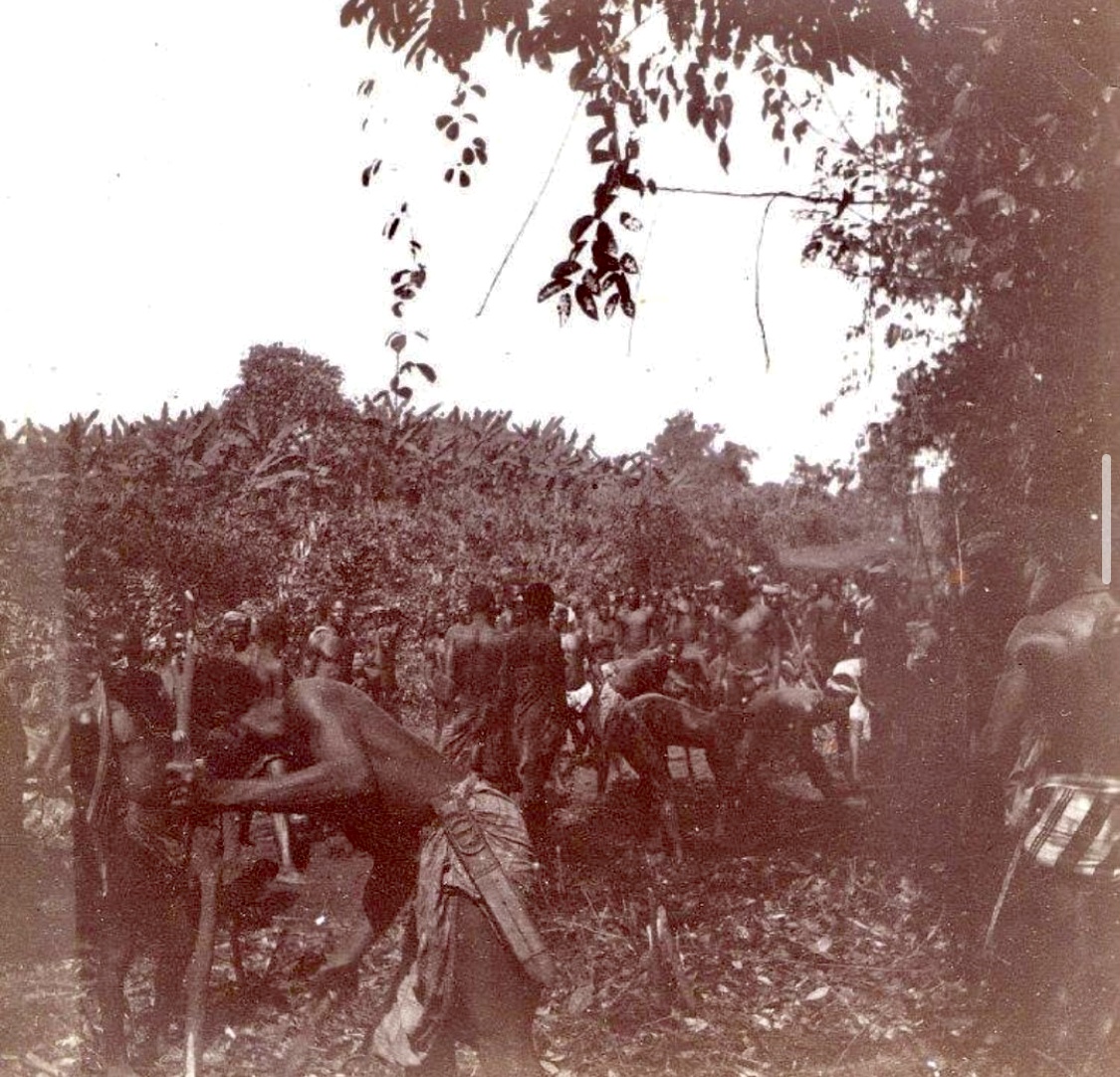
The Aro Punitive Expedition, also known as the Anglo-Aro War, was a British military campaign against the Aro-Oke-Igbo people of Southeastern Nigeria from 1901 to 1902.
The Aro-Igbo resisted British colonization fiercely, engaging in over 300 battles spanning twenty years (1900-1919). Despite suffering at least 10,000 casualties, their resistance slowed British advancement and control of Igboland, allowed partial self-determination and enabled gradual absorption of technological changes.
The Anglo-Aro War, or the Aro Punitive Expedition, was a defining moment in the history of Southeastern Nigeria, marking a clash between the British Empire and the Aro Confederacy, an influential socio-political network in the region. British forces aimed to dismantle the Aro Confederacy’s influence and impose colonial control, beginning a campaign that would have lasting impacts on the Igbo people and broader Nigerian society.
The Aro Confederacy, led by the Aro-Oke-Igbo, controlled extensive trade networks, including trade in palm oil and enslaved people, and wielded significant spiritual influence through the oracle of Arochukwu, known as Ibini Ukpabi. This oracle held immense sway across Igboland and beyond, further reinforcing the Aro’s authority in the region. The British viewed this power as a barrier to their colonial ambitions and launched a military campaign to subdue the Aro people.
Clearing Paths for British Forces
During the Anglo-Aro War, from the photo above, some Aro men were forced to clear bush paths with machetes for British troops advancing towards Bende, a strategic location. These acts, compelled under duress, facilitated British troop movements in an unfamiliar landscape, allowing British forces to penetrate deeper into Igbo territory.
Aro Resistance
The Aro-Igbo fiercely resisted British incursions. Over 300 battles between the Aro warriors and British forces spanned nearly two decades, from 1900 to 1919. Despite their limited resources and rudimentary weaponry compared to British arms, the Aro demonstrated remarkable resilience, engaging in both direct confrontations and guerrilla tactics.
Impact of Aro Resistance
The Aro-Igbo resistance significantly slowed British consolidation in Southeastern Nigeria, which in turn granted the Igbo people a period of relative autonomy. This period allowed the Aro and other Igbo communities to maintain some level of self-determination, even as they gradually incorporated certain technological and administrative changes introduced by the British.
Casualties and Aftermath
Despite suffering extensive losses, with at least 10,000 casualties on the Aro side, their prolonged resistance against the British occupation delayed full colonial control and established a legacy of Igbo resilience. Following the war, British authorities sought to dismantle Aro influence by outlawing traditional institutions, weakening the authority of local leaders, and imposing colonial structures. However, the legacy of Aro resistance persisted, shaping the socio-political landscape of Igboland well into the colonial period.
The Anglo-Aro War was thus more than a mere punitive expedition; it was a turning point in Igbo history. The conflict highlighted the Aro’s strategic and cultural importance and underscored the complexities of colonial resistance in Nigeria. This period remains emblematic of the Aro-Igbo’s enduring spirit of resilience and cultural pride in the face of foreign encroachment.
Reference:
Robert D. Jackson’s “The Twenty Years War: Invasion and Resistance in Southeastern Nigeria 1900-1919” (1975).
Isichei, E. (1976). A History of the Igbo People. Palgrave Macmillan.
Talbot, P. A. (1926). The Peoples of Southern Nigeria. Oxford University Press.
Afigbo, A. E. (1966). The Aro of Southeastern Nigeria. University of Ibadan Press.

